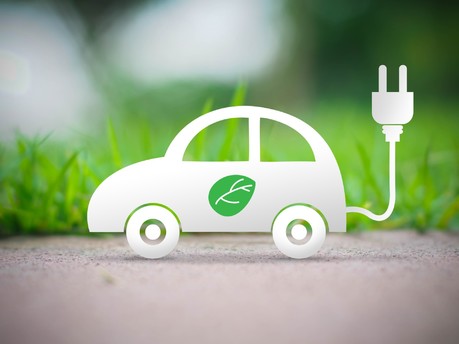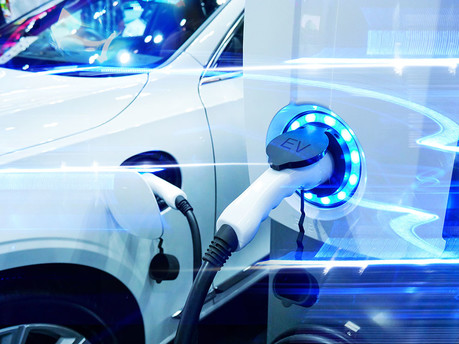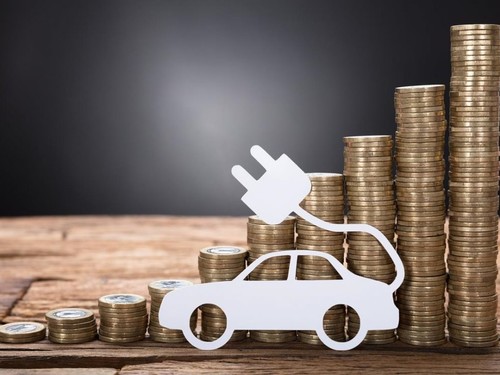Making the SWITCH to electric!
With the future of transport being electric it will come as no surprise that in the UK, the government are investing millions on new charging points, creating new incentives and making it easier than ever to make the switch to an electric vehicle. Closer to home, we’ve seen that Kingston Borough declared a climate emergency with the number of additional greenhouse gases being released into the atmosphere. While as a whole, the UK is currently on track to ban the production of all new petroleum and diesel cars by 2040. In a bid to combat the air pollution issue the Mayor of London, Sadiq Khan has extended London’s initial Ultra-Low Emission Zone with an extension in 2021 being 18 times larger than the initial zone.
We understand that the switch to electric can be daunting for some. Many do not understand how EV’s work, let alone whether they are ready to make the switch and invest. So we’ve decided to help you explore what it means to switch to electric.
How do electric cars work?
Firstly to understand electric cars it’s good to have a brief overview of what happens when you’re on the move and you’ll be surprised to hear how easy it really is.
Electric vehicles function by plugging into a charge point, taking electricity from the grid. The electricity is stored in rechargeable batteries that power an electric motor achieving motion by drawing on energy to turn the wheels. Electric vehicles are able to accelerate faster than other vehicles with fuel engines, making them feel lighter to drive.
One thing you’ll notice immediately as you turn the car on is the silence. The drivetrain runs quieter than an internal combustion engine. A fully electric vehicle means that there is no internal combustion engine, instead, you plug into a charge point to recharge its internal battery. As you can imagine, the electric car has zero exhaust emissions and is more economical in terms of running costs.
Batteries / Charging
Did you know that nearly all-electric cars use a lithium-ion battery? This is the same battery technology used in smartphones, laptops and tablets. Lithium-ion batteries last longer and have a high energy density, carrying more energy with less weight. A lithium-ion battery also works well in a range of different temperatures, so no need to worry when it gets frosty and minus temperatures in the UK.
Electric vehicle batteries come in various sizes, for example, the Nissan LEAF has a 40kWh battery while a Tesla Model S has a 100kWh. Regardless of the battery size, it does not always mean more miles per charge, but we see they are often used to drive bigger or more powerful cars.
When you go to charge your electric vehicle you are able to plug into a public charging station or into a home charging unit. With plenty of charging stations around the UK, it’s easier than ever to stay fully charged while out and about.
How much does it cost to run an electric vehicle?
Even though the initial cost of buying an Electric Vehicle can seem higher than what you’d pay for a fuel car there are many factors to take into consideration where you’ll be making a saving. Imagine never having to queue at a fuel station ever again!
Take a look at the table below to give an idea of the cost to fully charge an electric battery:
| Battery Size | Electric range *approximate* | Cost to fully charge | Cost per mile | |
| Nissan LEAF | 40 kWh | 150 miles | £5.60 | 3.7p |
| Tesla Model S 100 D | 100 kWh | 320 miles | £14 | 4.4p |
| Hyundai KONA | 39 kWh | 180 | £6.23 | 3.46p |
| Hyundai IONIQ | 31 kWh | 174 miles | £5.90 | 3.4p |
| Renault Zoe R110 ZE50 (2020) | 55 kWh | 242 miles | £8.62 | 3.5p |
| Peugeot e-208 (2020) | 50 kWh | 211 miles | £7.41 | 3.p |
*table based on miles and current prices
Road Tax
Road Tax is calculated based on the CO2 emissions of your vehicle. If you're looking to purchase a pure battery electric vehicle, this will mean you are exempt from Road Tax.
If you're looking at a Plug-in hybrid electric vehicle you will pay a reduced amount of Road Tax
Any vehicle with a list price of £40,000 or above will incur an additional premium rate for the first five years.
Car Maintenance Costs
An Electric Vehicle has fewer moving parts than internal combustion engines meaning reduced maintenance costs when compared to fuel vehicles. Despite this, they do still require maintenance that will incur costs, such as:
- Tyres and brakes
- Windscreens, wiper blades & washer fluid
- Battery repairs or replacements (this is extremely rare circumstances)
- General wear and tear of a vehicle.
So... how much will you save?
The energy group EDF claim that UK drivers each spend around £56,000 on petrol during their lifetime with the average lifetime cost of charging an electric car at just £15,000. You could save an average of 23% on the cost of service and maintenance when driving an electric vehicle.





